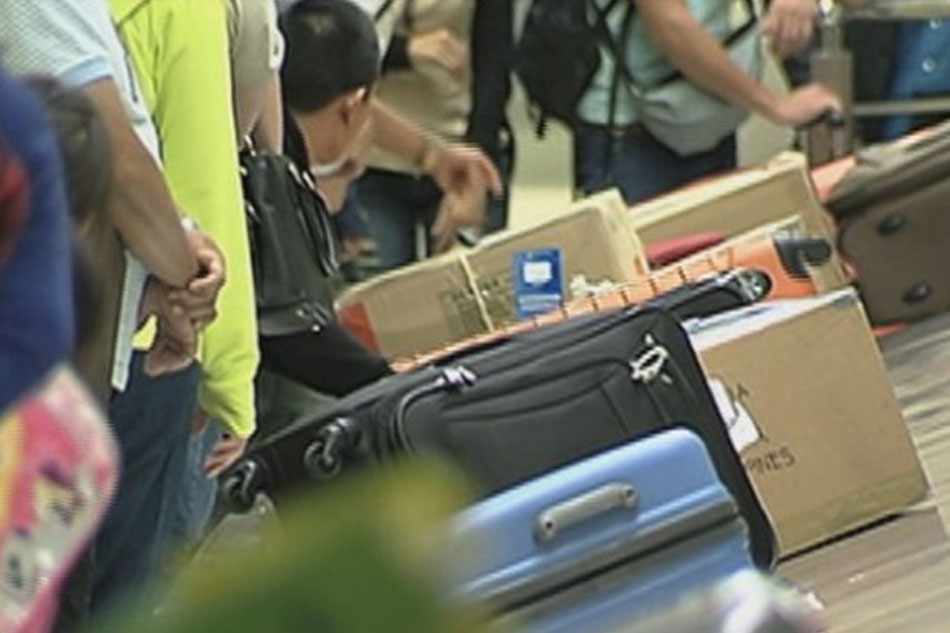Taxable Items In Bureau Of Customs Philippines
On
Multiple followers skyrim se. Customs procedures for selling a product in the Philippines: information about customs rights and import taxes, Philippine customs classification, methods of calculating and paying customs rights in the Philippines.
BOC issues Rules on Tax and/or Duty-Free Importation of Returning Residents, OFWs
Bureau of Customs PH·Sunday, January 22, 2017
The Bureau of Customs has issued Customs Administrative Order (CAO) No. 06-2016, which covers the provisions of Republic Act No. 10863 (or the Customs Modernization and Tariff Act) on conditionally tax and/or duty–exempt importation of personal and household effects of “Returning Residents' and Returning Overseas Filipino Workers (OFWs).
The said CAO was published in the Official Gazette on 9 January and will take effect 15 days after its publication, or on 24 January.
Below is a summary of the guidelines provided in the said CAO:
- In line with the mandate by the Bureau of Customs on balikbayan boxes sent by overseas Filipino workers, a ranking official of the agency answered the common question being asked by concerned individuals traveling to the Philippines. “Which items in my luggage are considered taxable?” In a news report by GMA 7, no tax is.
- Oct 12, 2016 - The Bureau of Customs announced Wednesday that starting Oct. 25, items valued at P10,000 and below will no longer be taxable. The old Tariff and Customs Code of the Philippines only provided a de minimis threshold of.
1. 'Returning Resident' – a Filipino national, including his/her spouse and dependent children, who has stayed abroad for a period of at least 6 months and is returning to the Philippines.
2. Returning Overseas Filipino Worker (OFW) – holder of a valid passport issued by the Department of Foreign Affairs (DFA) and certified by Department of Labor and Employment (DOLE) or Philippine Overseas Employment Administration (POEA) for overseas employment purposes. This covers all Filipinos working in a foreign country under employment contracts, regardless of their professions, skills or employment status.
To avail of this privilege, the personal and household goods must accompany the Returning Residents or Returning OFWs upon their return from abroad or must arrive within a reasonable time, which shall not exceed sixty (60) days after the owner’s return.
B. What are the beneficiaries allowed to bring in?
1. “Personal and Household Effects”, such as wearing apparel, personal adornments, electronic gadgets, toiletries, or similar items; furniture, dishes, linens, libraries, and similar household furnishing for personal use; and instruments related to one’s profession and analogous personal or household effects whether new or used, that are for personal use or consumption and not for commercial purposes, not intended for barter, sale or hire;
2. “Durables” such as household appliances, machinery, or sports equipment that may be used repeatedly or continuously over a period of a year or more, assuming a normal or average rate of physical usage.
Note: Household appliances, jewelry, precious stones, and other goods of luxury that were previously exported from the Philippines are also exempt from the payment of duties and taxes if these are covered by a Certificate of Identification (CI) that was issued by an authorized Customs Officer before these goods were brought out or exported from the Philippines.
Excisable items such as, but not limited to, distilled spirits, wines, cigars and cigarettes, perfumes, toilet waters, in excess of the allowable quantity to be prescribed by the Bureau shall be subject to payment of duties, taxes and other charges.
For efficient cargo clearance, Returning Residents and Returning OFWs or their authorized representative must comply with the following:

1. Sign and submit in advance to BOC a “Personal and Household Effect Declaration Form,” which will be issued by the Bureau in a separate order;
In case of accompanied baggage, submit the accomplished form upon arrival to a Customs Officer;
2. Secure a Duty and Tax Free Exemption Certificate (TEC) from the Revenue Office of the Department of Finance (DOF).
Exemption from payment of duties and taxes on personal and household effects of “Returning Residents” and Returning OFWs must not exceed the following values:
1. P350,000.00 for those who have stayed in a foreign country for at least ten (10) years and have not availed of this privilege within ten (10) years prior to the Returning Resident's or OFW's arrival;
2. P250,000.00 for those who have stayed in a foreign country for a period of at least five (5) years but not more than ten (10) years and have not availed of this privilege within five (5) years prior to the Returning Residents of OFW's arrival; or
Bureau Of Customs Philippines Website
3. P150,000.00 for those who have stayed in a foreign country for a period of less than five (5) years and have not availed for this privilege within six (6) months prior to the Returning Resident's or OFW's arrival.
In addition to the privilege stated above, Returning OFWs are allowed to bring in, tax and duty-free, home appliances and other durables limited to one (1) of a kind, the total amount of which shall NOT exceed P150,000.00. Any amount in excess shall be subject to corresponding duties and taxes.
1. Luxury items, unless covered by a pre – departure Certificate of Identification;
3. Watercrafts;
5. Animals;
7. Goods intended for barter, sale or hire;

9. Regulated goods in excess of the limits allowed by regulations; and
The whole text of CAO No. 06-2016 may be viewed at the BOC website (http://customs.gov.ph/wp-content/uploads/2016/12/cao-6-2016-Conditionally-Tax-andor-Duty-Exempt-Importation-of-Returning-Residents-and-Overseas-Filipino-Workers-OFW-UP.pdf).